Blog
Get the inside scoop about life at U-M and applying to Michigan from current student bloggers, Admissions staff, and guest faculty writers.
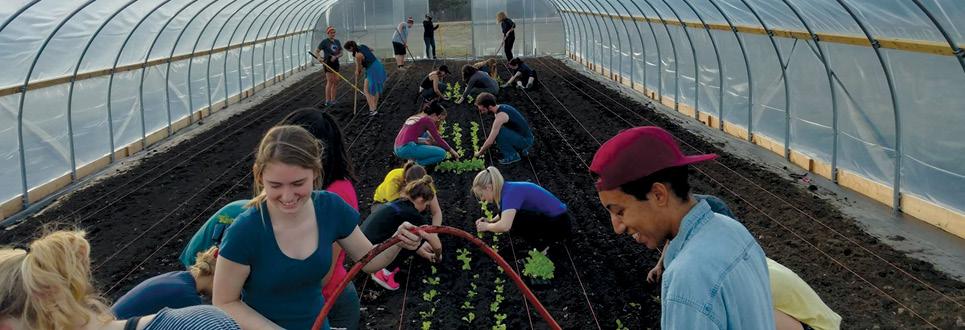
Get the inside scoop about life at U-M and applying to Michigan from current student bloggers, Admissions staff, and guest faculty writers.

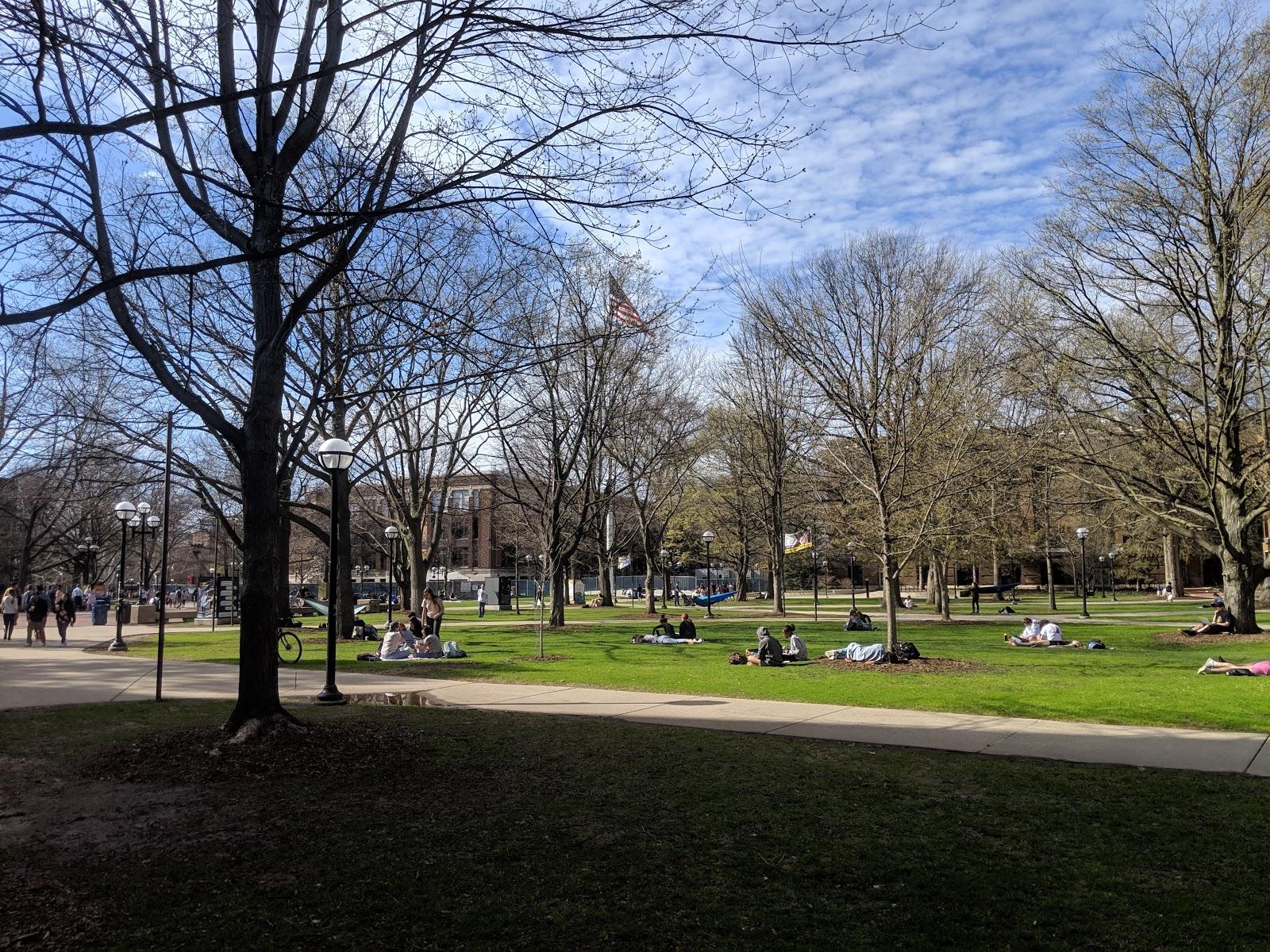
Fall term classes begin on September 3, a little less than a month and a half from now. Incoming #Victors2023, freshman year approaches, and as you probably expect, it will be novel and challenging in ways that you may or may not anticipate.
Wolverines come from diverse backgrounds and pursue different fields of study, so I don't believe there's a fixed course that your freshman years are guaranteed to follow. But they also won't be completely different; we'll share some experiences, and for that reason, I think you might gain insight from learning the best and worst decisions that I made as a young and impressionable freshman.
GOOD: Going to class and sitting in the front row
Optional attendance is both good and bad: good, because it gives you more flexibility in managing your schedule, but also bad, because you won't feel the effects of habitual truancy until they teleport behind you during the midterm exam.
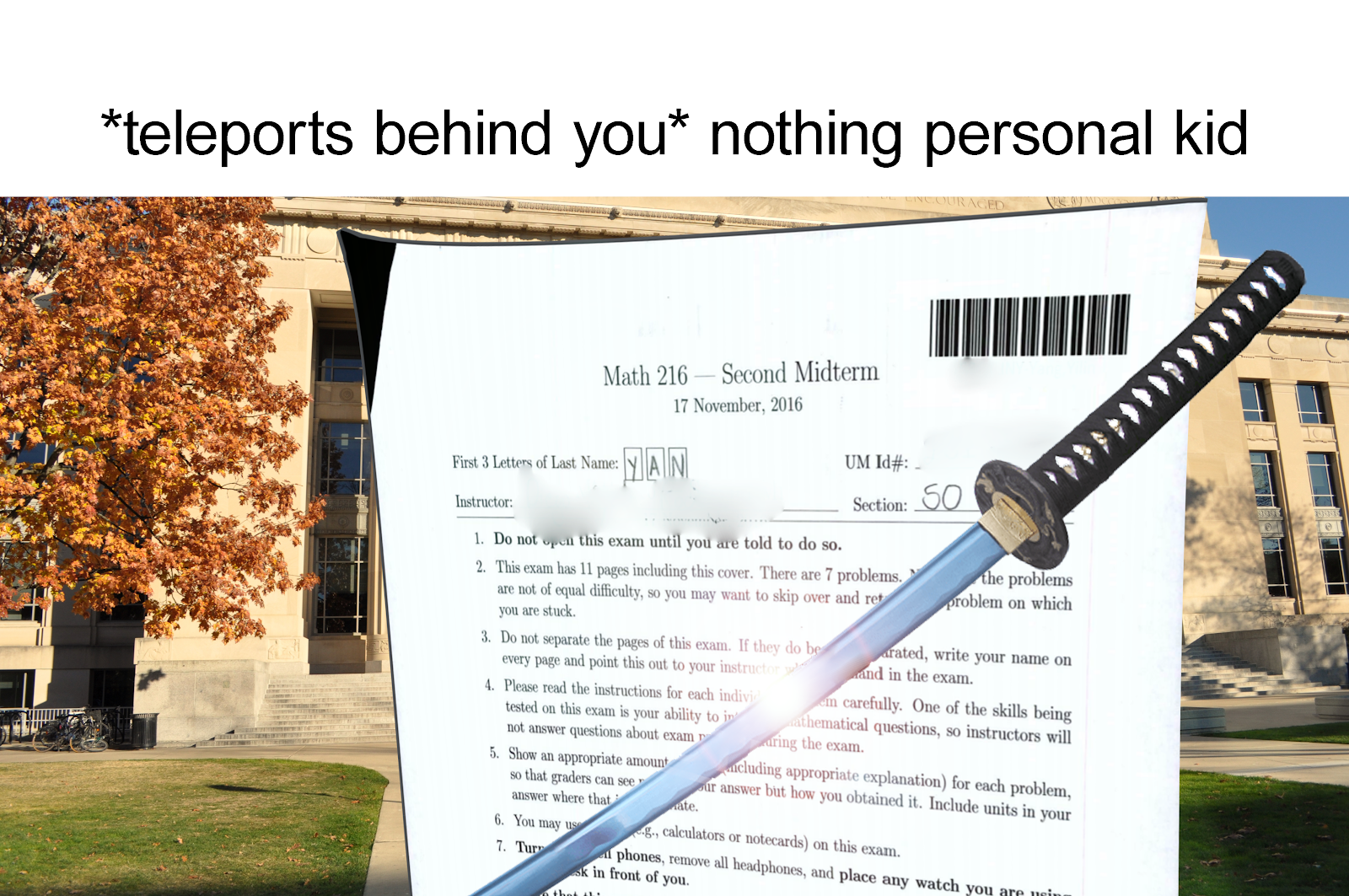
Actually going to class created consistency in my schedule, and sitting in the front row forced me to pay attention and allowed me to actually see whatever the professor wrote on the board. Both of these were invaluable in helping me to stay on top of my coursework.
BAD: Arriving to class late and having to sit in the back
Of course, if you arrive late, all of the best seats will most likely be taken and you will be forced to sit in the back row.
Michigan's lecture halls can be large; on the few occasions when I made this mistake when taking Differential Equations, I was so far from the board that I resorted to using my smartphone camera as a telescope.
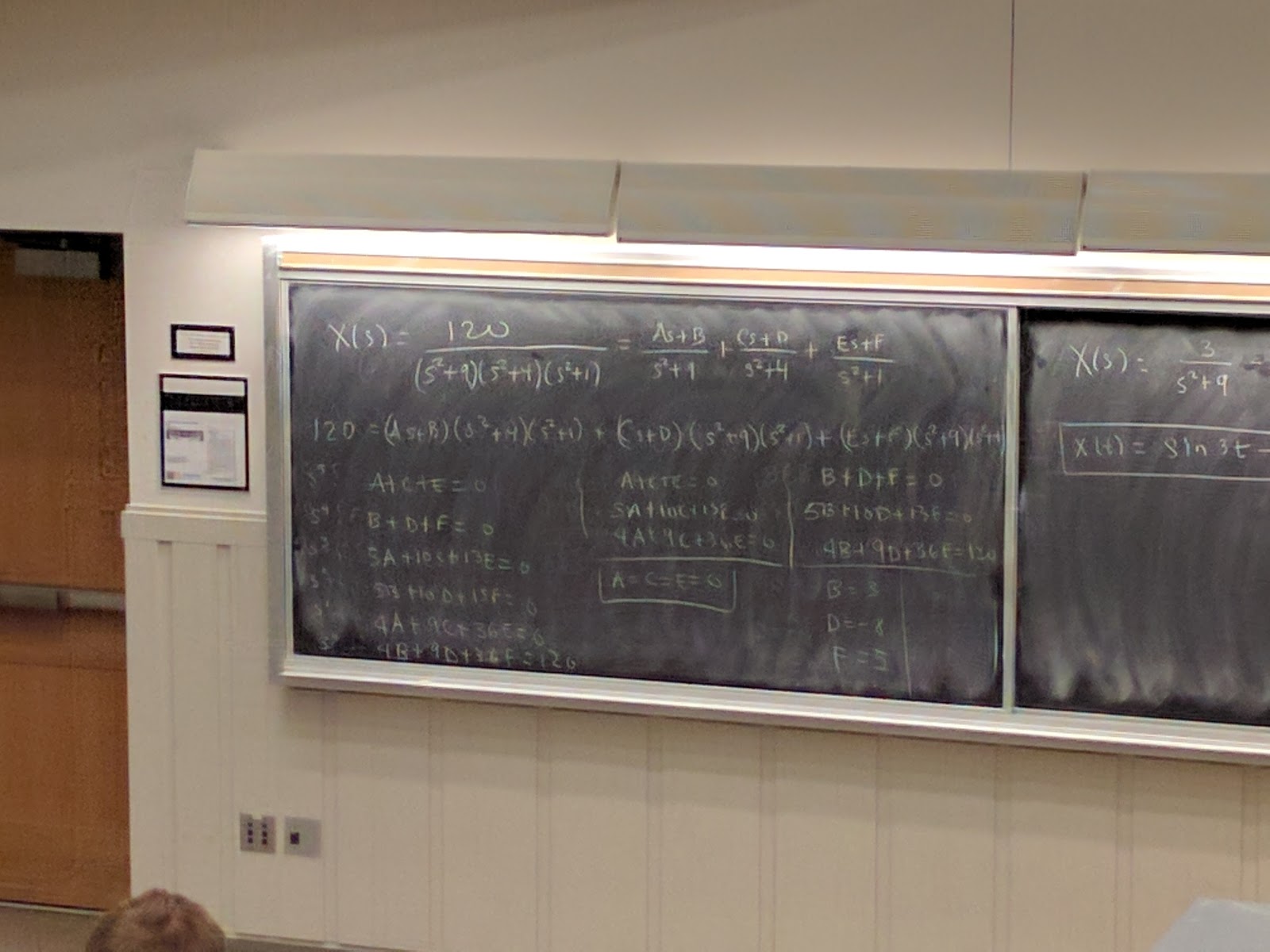
This was not conducive to good learning.
GOOD: Befriending and studying with my classmates
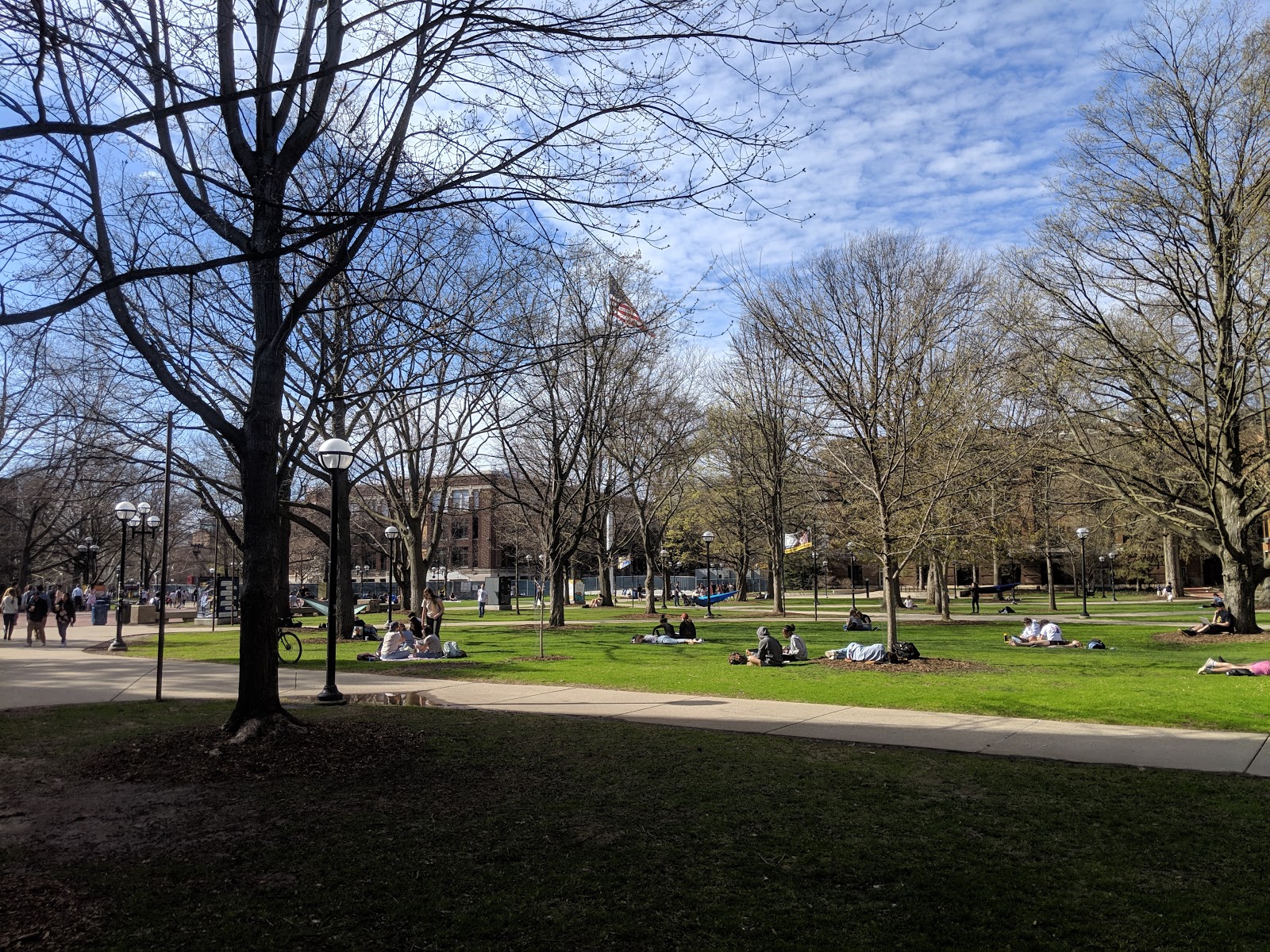
My reaction to my first college lecture was one of bafflement and blind terror. (My instructor assumed some prior knowledge that I didn't have: not only did I not know the concepts that he described, I didn't even recognize the letters he was writing in his equations.)
Most of my fear came from lack of familiarity: I didn't have anywhere to anchor myself, in terms of how to approach the material or whom to ask for help. Befriending my classmates – by organizing study groups on the course Piazza forum, by grabbing lunch with my lab partners, or just by striking up conversations with the people sitting next to me – was the biggest single factor easing that burden.
That helps in the obvious ways. (One of my lab partners, by virtue of being a sophomore, already knew that students were free to go to the office hours of any of our course instructors, not just the one for our section.) But beyond that, it helps you feel psychologically safer. Even if your newfound friends are just as clueless as you are, fumbling through the maze of college life feels easier when you aren't doing it alone.
BAD: Not hanging out more with my hallmates
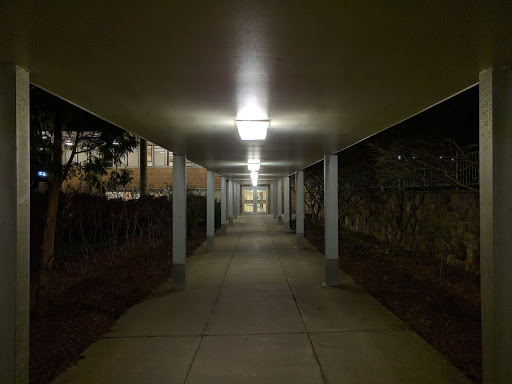
University Housing placed me in a single room on the top floor of Bursley Hall. I was pumped about that assignment at first: not having a roommate means not having to work around another human's sleep schedule. But not having a roommate means not having a roommate's companionship, not having someone with whom to vent or share funny anecdotes at the end of the school day. That can be dangerous if you don't have a strong support network.
The obvious solution would be to hang out with my hallmates, which I (for the most part) didn’t do. It wasn't that they disliked me: I befriended several of them, but my social anxiety stopped those friendships from growing. Even carrying on a friendly conversation with someone felt so mentally taxing that my end goal was always escape and not parlaying the conversation into a later social commitment. Rather than knocking on my hallmates' doors, I would retreat into my room and lock myself in, every single day.
This was a missed opportunity. Dorm life is meant to be social, and I regret not doing more to make it so.
GOOD: Joining a student org relevant to my major and investing time into it
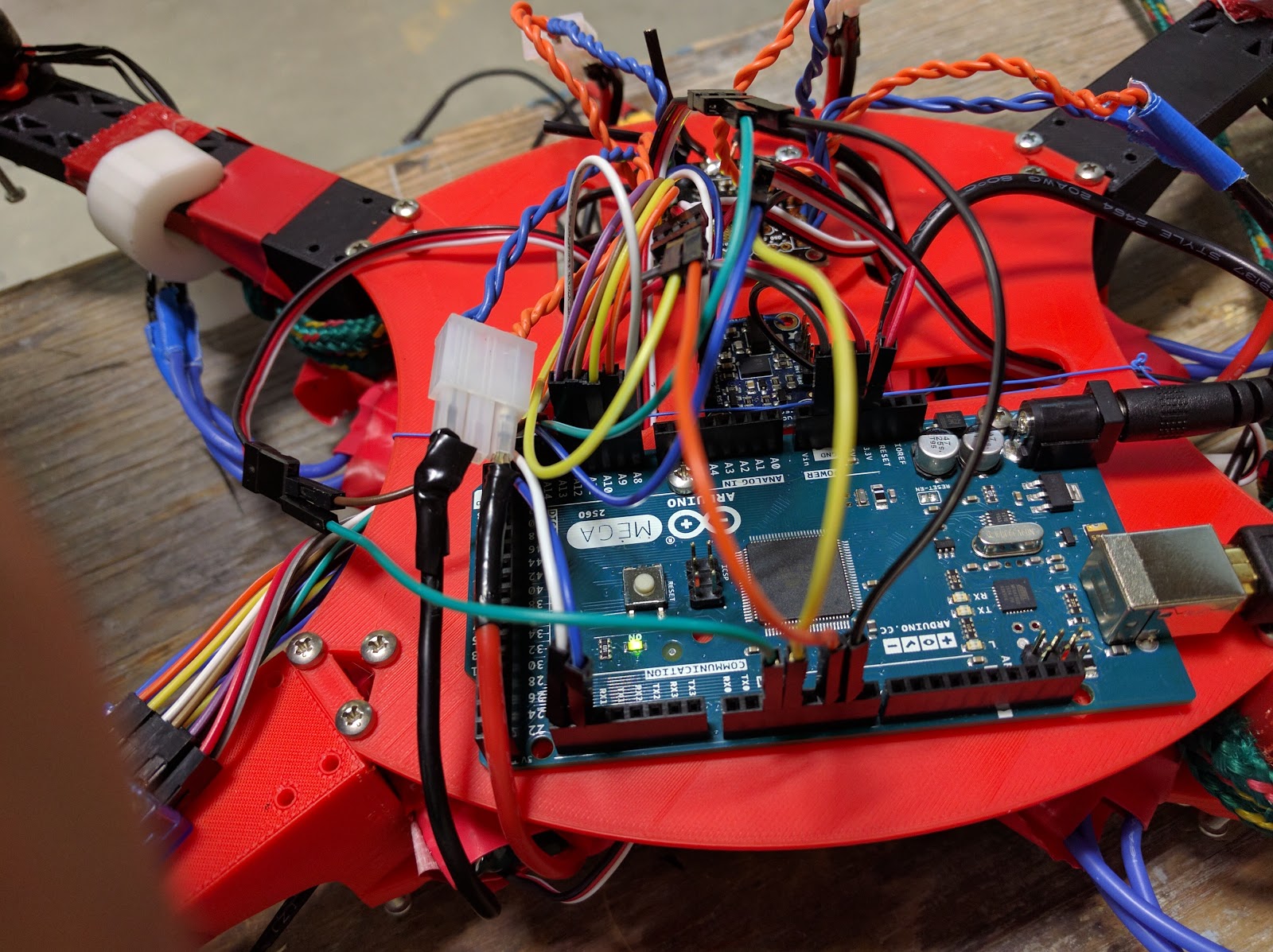
I discussed this in a prior blog post, but I joined one of the College of Engineering's student design teams during my freshman year. Though this required substantial sacrifices, it gave me a friend group of like-minded people and relevant work experience that most computer science students don't obtain until their first internship.
I'm of the opinion that it's better to join a single student organization (or tentatively join a few, but only commit to one) and throw yourself into it than it is to join several but engage in them at only a surface level. The latter lets you put more bullet points on your resume, but gives you fewer talking points, and it makes it appreciably more difficult to meaningfully bond with your clubmates.
BAD: Not finding any time to rest and decompress
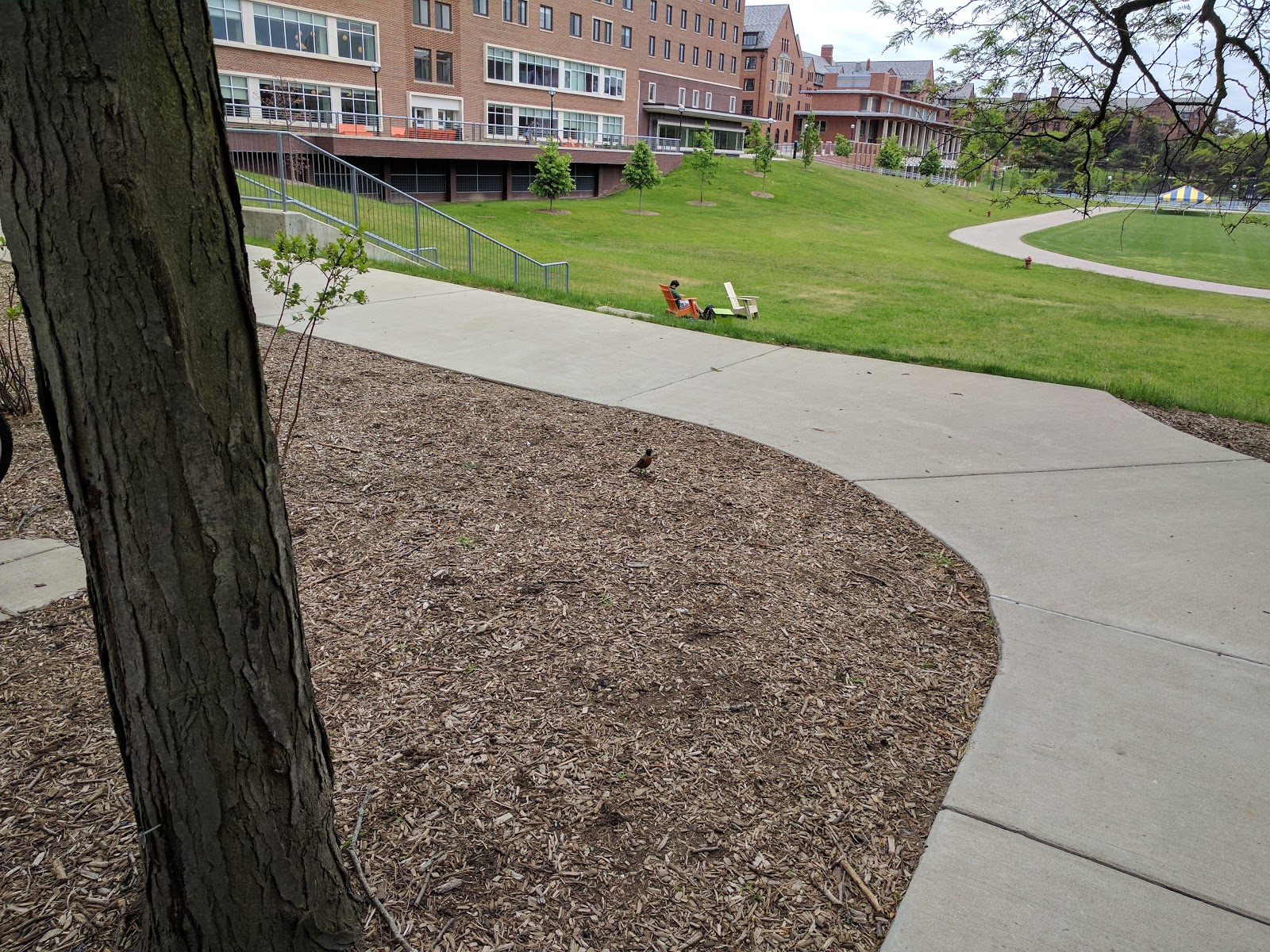
One possible consequence of taking a difficult course load is feeling inescapably compelled to be busy. Taking time off for yourself will paradoxically stress you more: you feel guilt at not spending that time "productively," you recognize that this guilt prevents you from relaxing during this allotted relaxation time, you feel guilt at your failure to relax during this relaxation time, and then you feel sad.
I struggled to find a healthy outlet for stress during my freshman year. This was partly my own fault, since I think that I'd just overbooked myself, but not being able to effectively set aside personal time had adverse effects on freshman-Yilin's quality of life.
GOOD: Taking a creative writing course because it sounded fun
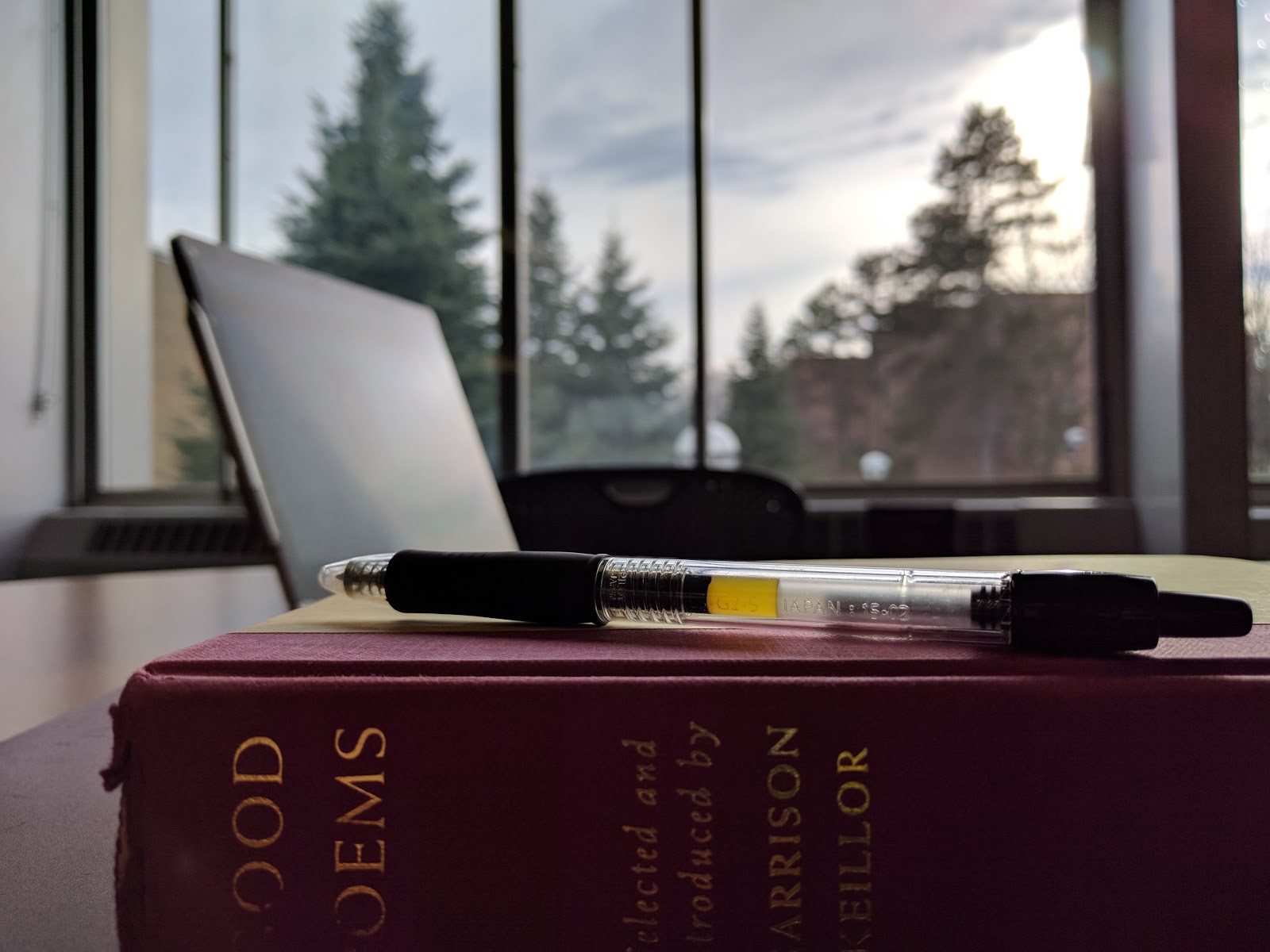
Engineering students are required to complete 16 credits of intellectual breadth courses as part of their degree. In my experience, public perception of this requirement among the engineering student body is deeply ambivalent; while some students enjoy it, it's just as common for students to complete this requirement with a battery of "blow-off" courses just to get it out of the way.
At the prompting of my advisor, I took ENG 223: Intro to Creative Writing during my second semester. I had a prior interest in the subject from various abortive attempts at writing My Little Pony fanfiction in high school, so I had real motivation to take the class seriously so that I could improve as a writer.
It became one of my favorite courses. It made me a better writer – both creatively and technically – but it also made me a better person: I found learning to write creatively is actually an exercise in shared empathy.
BAD: Taking a really hard math course because it sounded prestigious
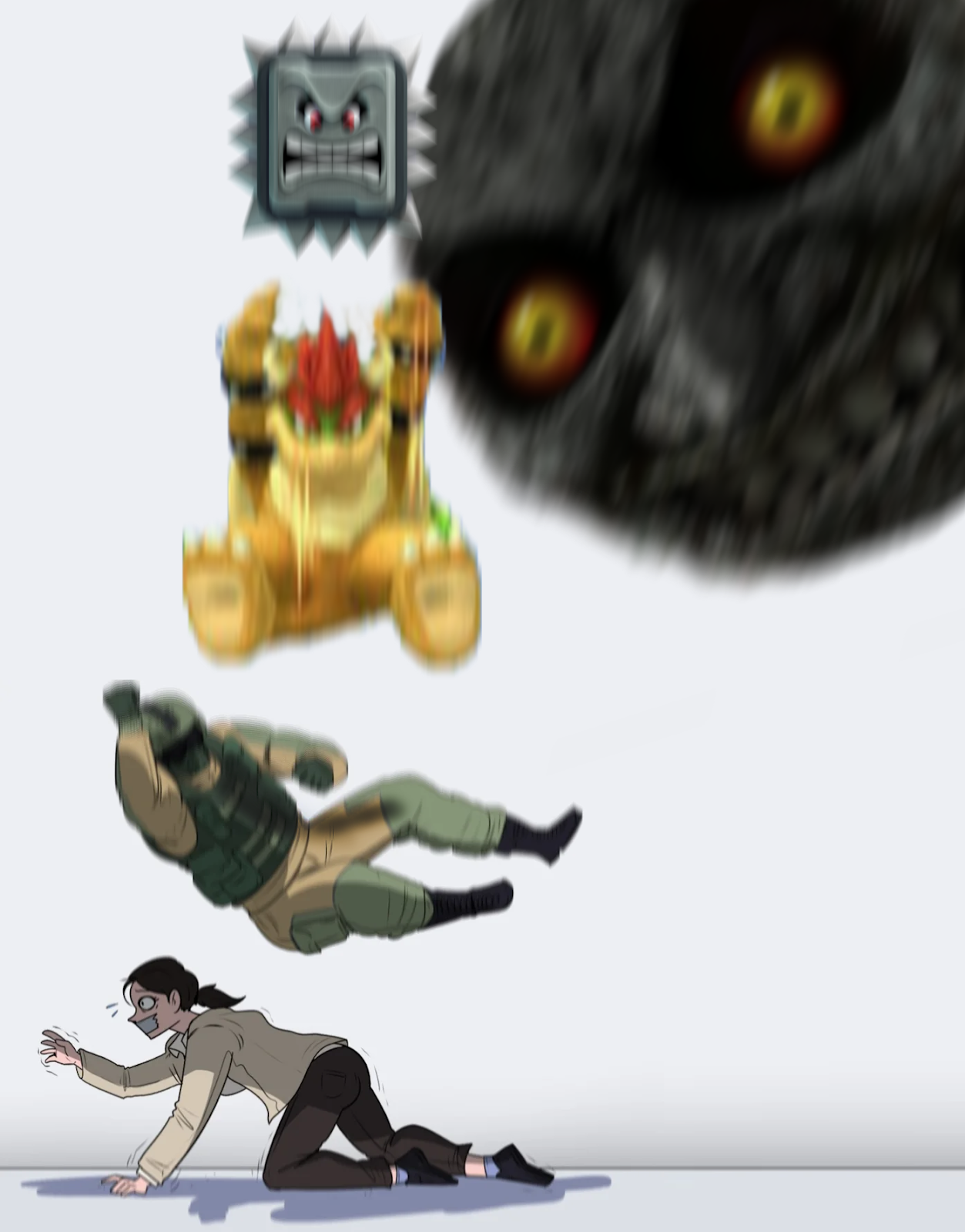
Engineering students (in some majors) are also required to take a linear algebra course as part of their core requirements. As with most basic requirements, students can substitute an "equivalent" course covering the same material: for linear algebra, the "standard" offering is MATH 214; one available equivalent is MATH 217.
While MATH 214 is designed for engineering students and emphasizes practical applications, MATH 217 is a requirement for math majors and is used by the math department to teach proof-writing. Its students learn linear algebra by deriving it from first principles, for the entire semester.
Many ambitious and highfalutin’ compsci majors say that MATH 217 is better than MATH 214: that it teaches more material andstudents who take it are better prepared for later courses in machine learning and computer vision As a high school valedictorian used to taking all of the accelerated, Honors, and AP courses, 217 sounded right up my alley.
217 was not up my alley. 217 was up a different and much darker alley, one filled with noxious vapors and a bear. 217 drove me into an actual nervous breakdown and became the first course that I'd ever had to drop for any reason.
I took 217 for all of the wrong reasons and none of the right ones. There do exist courses that are worth taking despite the sacrifice needed to manage them – I'll be helping to teach one in the Fall – but taking such courses should always be a careful and considered choice, not a snap decision motivated by one-upmanship.
BAD: Not seeking help for untreated mental illness developed during high school
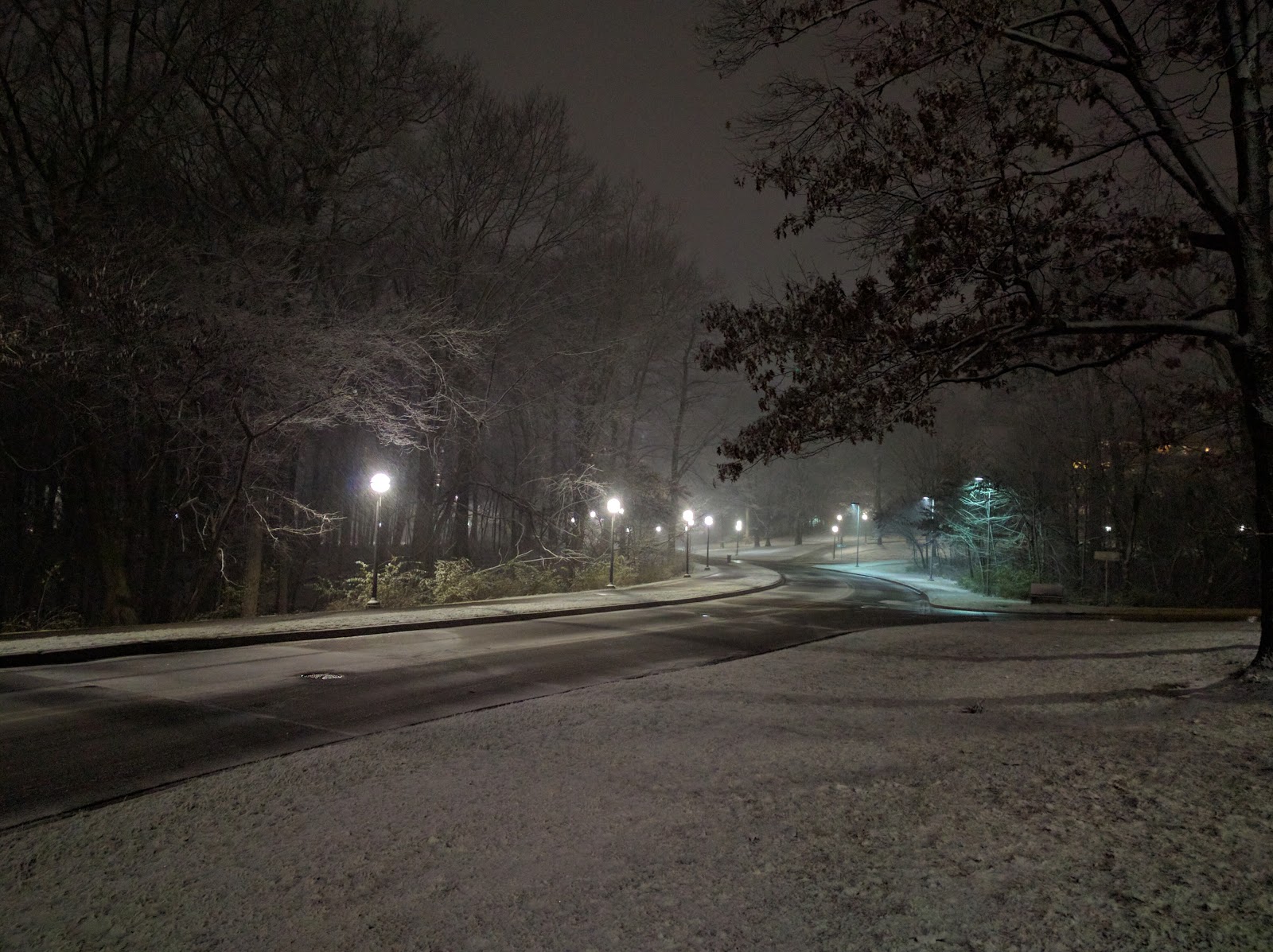
It is common for American college students to suffer crushing depression and anxiety.
These don't necessarily start during college. Though I was clinically diagnosed with major depression and social anxiety during my freshman year, I'd been presenting symptoms since middle school. In hindsight, I think it's somewhat remarkable that I kept going for so long; by the time I started college, I was a bandaged shell of chipper overachievement wrapping a pockmarked flesh of agonized, screaming despair.
I'm honestly not sure how to present this beyond a blanket prescription that, if you think that you should seek help, then you should do so as soon as possible. There's no romance or nobility to suffering mental illness, no more than there is romance or nobility to getting shoved in a woodchipper. Mental illness is illness: it can be treated, and starting that treatment produced the largest single improvement in my quality-of-life since getting a full set of adult teeth. I only wish that I’d started it sooner, rather than having been forced into it at the last possible second.
If you find yourself struggling during the school year, there are a number of resources available to you. Aside from friends and family, I've had luck talking to my Resident Advisor, to academic advisors (first year engineering students can schedule with the Engineering Advising Center, like I did; LSA students can schedule with the Newnan Academic Advising Center), course instructors whom I trusted and with whom I had strong relationships, and Counseling and Psychological Services.
That said, as with all forms of health care, it's best to be proactive. None of the resources I mentioned are an adequate substitute for long-term counseling, therapy, and/or medication. Even CAPS – though it provides some long-term treatment options, like group therapy, which I did find helpful – is neither equipped for nor intended to provide long-term treatment for serious mental illness. (They're meant as a safety net for at-risk students: they're often overbooked, especially during exam season, and during freshman year I wasn't able to meet with them more than biweekly.)
If you need help in finding long-term treatment, your family doctor can give you a referral to a psychiatrist and/or a private counselor or therapist. (You can also schedule appointments with a psychiatrist or fill prescriptions at University Health Services.) For students with financial need, most private counselors will accept payment on a sliding scale (i.e. patients with greater financial need are given a discount); CAPS also has case workers available to help connect students with affordable treatment options.
GOOD: Realizing that life is meant to serve a meaningful purpose
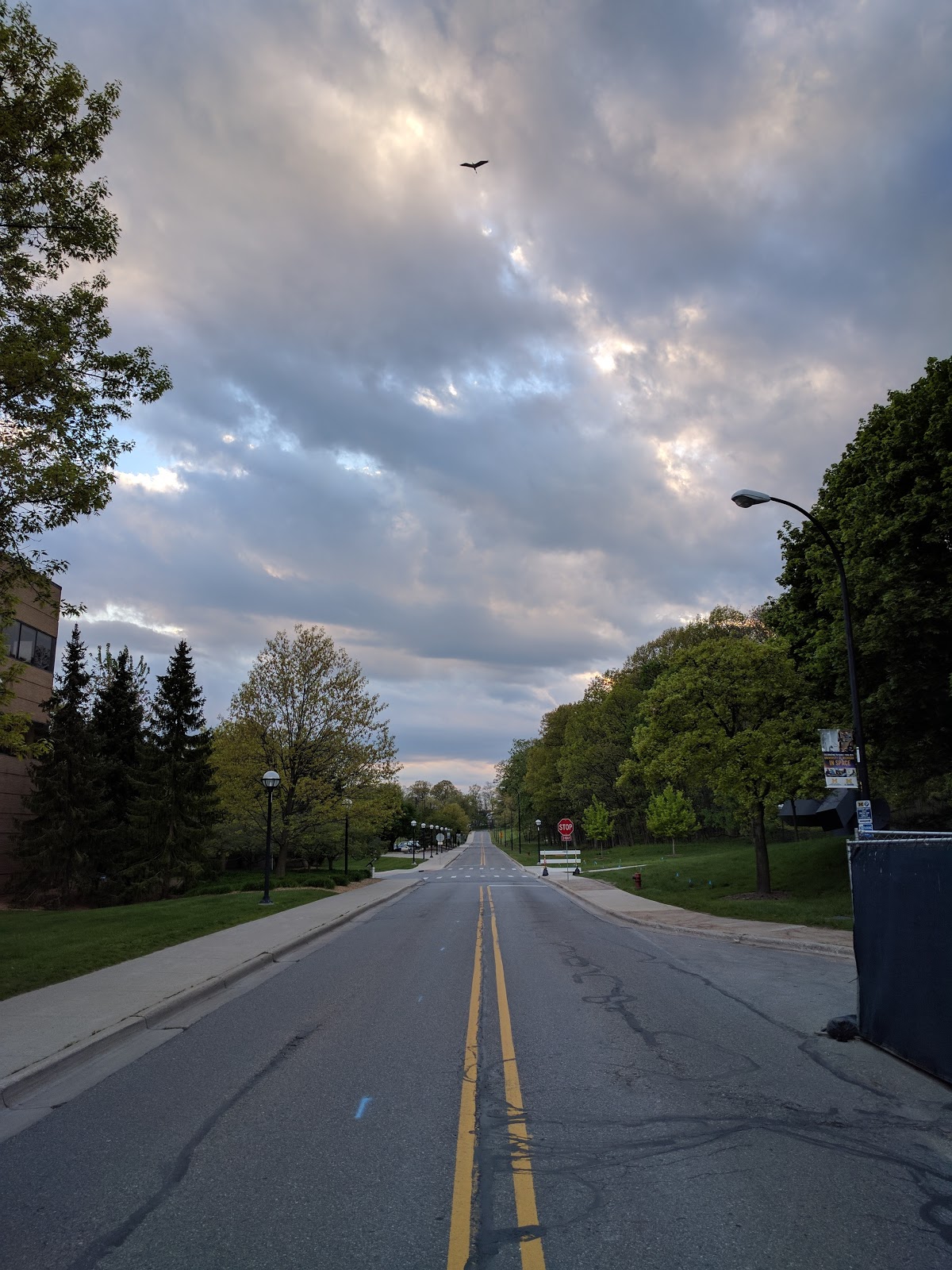
One of the most terrifying realizations of college life is that you are, at most, several years from Adulthood and having to enter The Real World. Being an Adult in The Real World requires that you Do Things and Live Life, and college is meant to prepare you to Do Things and to Live Life.
The closer you get to The Real World, the more perspective you gain as to your coursework's real importance. Data Structures and Algorithms is important because I need to understand subjects to do my work. The humanities are important because I need to understand success in a way conducive to Actually Being Happy rather than dying the death of a salesman. Linear algebra is not important, because I have not solved a matrix equation since I took linear algebra. And so on.
We think of college as being like the final boss of education, as something to be beaten rather than an opportunity to grow.
Reality lies somewhere in the middle.
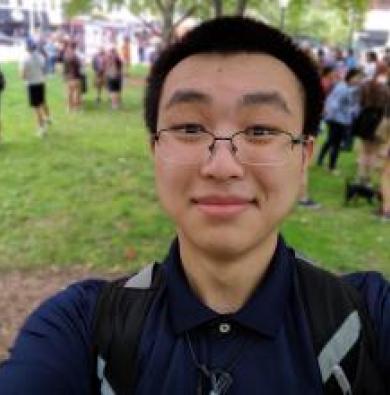
(rhymes with "Dylan") is a senior in the College of Engineering. Though free-spirited and soulful in his youth, Yilin was doomed to major in computer science after being kidnapped by feral app developers and raised in the Michigan wilderness. Outside of his coursework, Yilin works as an Instructional Aide for EECS 482: "Intro Operating Systems", writes plugins for obscure open-source text editors, and injures himself grievously while riding Bird scooters.